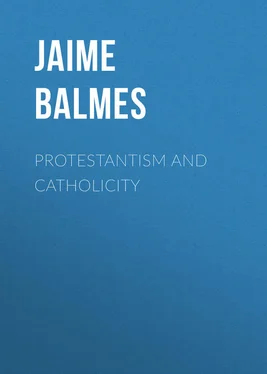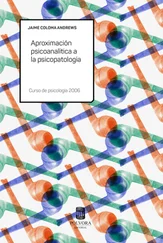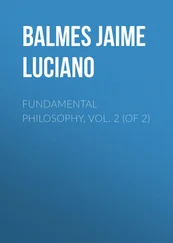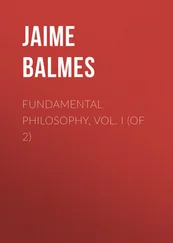Jaime Balmes - Protestantism and Catholicity
Здесь есть возможность читать онлайн «Jaime Balmes - Protestantism and Catholicity» — ознакомительный отрывок электронной книги совершенно бесплатно, а после прочтения отрывка купить полную версию. В некоторых случаях можно слушать аудио, скачать через торрент в формате fb2 и присутствует краткое содержание. Жанр: foreign_antique, foreign_prose, на английском языке. Описание произведения, (предисловие) а так же отзывы посетителей доступны на портале библиотеки ЛибКат.
- Название:Protestantism and Catholicity
- Автор:
- Жанр:
- Год:неизвестен
- ISBN:нет данных
- Рейтинг книги:3 / 5. Голосов: 1
-
Избранное:Добавить в избранное
- Отзывы:
-
Ваша оценка:
- 60
- 1
- 2
- 3
- 4
- 5
Protestantism and Catholicity: краткое содержание, описание и аннотация
Предлагаем к чтению аннотацию, описание, краткое содержание или предисловие (зависит от того, что написал сам автор книги «Protestantism and Catholicity»). Если вы не нашли необходимую информацию о книге — напишите в комментариях, мы постараемся отыскать её.
Protestantism and Catholicity — читать онлайн ознакомительный отрывок
Ниже представлен текст книги, разбитый по страницам. Система сохранения места последней прочитанной страницы, позволяет с удобством читать онлайн бесплатно книгу «Protestantism and Catholicity», без необходимости каждый раз заново искать на чём Вы остановились. Поставьте закладку, и сможете в любой момент перейти на страницу, на которой закончили чтение.
Интервал:
Закладка:
Who now defends the doctrines of Luther and Calvin? Who respects the limits which they prescribed? What Protestant Church distinguishes itself by the ardor of its zeal in preserving any particular dogmas? What Protestant now holds the divine mission of Luther, or believes the Pope to be Antichrist? Who watches over the purity of doctrine, and points out errors? Who opposes the torrent of sectarianism?
Do we find, in their writings, or in their discourses, the energetic tones of conviction, or the zeal of truth? In fine, what a wide difference do we find when we compare the Protestant Church with the Catholic! Inquire into the faith of the latter, and you will hear from the mouth of Gregory XVI., the successor of St. Peter, the same that Luther heard from Leo X. Compare the doctrine of Leo X. with that of his predecessors, you will always find it the same up to the Apostles, and to Jesus Christ himself. If you attempt to assail a dogma, if you try to attack the purity of morals, the voice of the ancient Fathers will denounce your errors, and in the middle of the nineteenth century you will imagine that the old Leos and Gregories are risen from the tomb. If your intentions are good, you will find indulgence; if your merits are great, you will be treated with respect; if you occupy an elevated position in the world, you will have attention paid to you. But if you attempt to abuse your talents by introducing novelty in doctrine; if, by your power, you aspire to demand a modification of faith; and if, to avoid troubles or prevent schism, or conciliate any one, you ask for a compromise or even an ambiguous explanation; the answer of the successor of St. Peter will be, "Never! faith is a sacred deposit which we cannot alter; truth is immutable; it is one: " and to this reply of the Vicar of Jesus Christ, which with a word will banish all your hopes, will be added those of the modern Athanasiuses, Gregories of Nazianzen, Ambroses, Jeromes, and Augustins. Always the same firmness in the same faith, the same unchangeableness, the same energy in preserving the sacred deposit intact, in defending it against the attacks of error, in teaching it to the faithful in all its purity, and in transmitting it unaltered to future generations. Will it be said that this is obstinacy, blindness, and fanaticism? But, eighteen centuries gone by, the revolutions of empires, the most fearful catastrophes, an infinite variety of ideas and manners, the most severe persecutions, the darkness of ignorance, the conflicts of passion, the lights of knowledge, – none of these have been able to enlighten this blindness, to bend this obstinacy, or extinguish this fanaticism. Certainly a reflecting Protestant, one of those who know how to rise above the prejudices of education, when fixing his eyes on this picture, the truth of which he cannot but acknowledge, if he is well informed on the question, will feel strong doubts arise within him as to the truth of the instruction he has received; he will at least feel a desire of examining more closely this great prodigy which the Catholic Church presents to us. But to return.
We see the Protestant sects melting away daily, and this dissolution must constantly increase; nevertheless, we have no reason to be astonished that Protestantism, inasmuch as it consists of a number of sects who preserve the name and some remains of Christianity, does not wholly disappear; for how could it disappear? Either Protestant nations must be completely swallowed up by irreligion or atheism, or they must give up Christianity and adopt one of the religions which are established in other parts of the world. Now both these suppositions are impossible; therefore this false form of Christianity has been and will be preserved, in some shape or other, until Protestants return to the bosom of the Church.
Let us develop these ideas. Why cannot Protestant nations be completely swallowed up by irreligion and atheism, or indifference? Because such a misfortune may happen to an individual, but not to a nation. By means of false books, erroneous reasonings, and continual efforts, some individuals may extinguish the lively sentiments of their hearts, stifle the voice of conscience, and trample under foot the dictates of common sense; but a nation cannot do so. A people always preserves a large fund of candor and docility, which, amid the most fatal errors and even the most atrocious crimes, compels it to lend an attentive ear to the inspirations of nature. Whatever may be the corruption of morals, whatever may be the errors of opinion, there will never be more than a small number of men found capable of struggling for a long time against themselves, in the attempt to eradicate from their hearts that fruitful germ of good feelings, that precious seed of virtuous thoughts, with which the beneficent hand of the Creator has enriched our souls. The conflagration of the passions, it is true, produces lamentable prostration, and sometimes terrible explosions; but when the fire is extinguished, man returns to himself, and his mind becomes again accessible to the voice of reason and virtue. An attentive study of society proves that the number of men is happily very small who are, as it were, steeled against truth and virtue; who reply with frivolous sophistry to the admonitions of good sense; who oppose with cold stoicism the sweetest and most generous inspirations of nature, and venture to display, as an illustration of philosophy, firmness, and elevation of mind, the ignorance, obstinacy, and barrenness of an icy heart. The generality of mankind, more simple, more candid, more natural, are consequently ill-suited to a system of atheism, or indifference. Such a system may take possession of the proud mind of a learned visionary; it may be adopted, as a convenient opinion, by dissipated youth; and in times of agitation, it may influence a few fiery spirits; but it will never be able to establish itself in society as a normal condition.
No, by no means. An individual may be irreligious, but families and society never will. Without a basis on which the social edifice must rest; without a great creative idea, whence will flow the ideas of reason, virtue, justice, obligation, and right, which are as necessary to the existence and preservation of society as blood and nourishment are to the life of the individual, society would be destroyed; without the sweet ties by which religious ideas unite together the members of a family, without the heavenly harmony which they infuse into all its connections, the family would cease to exist, or at least would be only a rude and transient union, resembling the intercourse of animals. God has happily gifted all his creatures with a marvellous instinct of self-preservation. Guided by that instinct, families and society repudiate with indignation those degrading ideas which, blasting by their fatal breath all the germs of life, breaking all ties, upsetting all laws, make both of them retrograde towards the most abject barbarism, and finish by scattering their members like dust before the wind.
The repeated lessons of experience ought to have convinced certain philosophers that these ideas and feelings, engraven on the heart of man by the finger of the Author of nature, cannot be eradicated by declamation or sophistry. If a few ephemeral triumphs have occasionally flattered their pride, and made them conceive false hopes of the result of their efforts, the course of events has soon shown them, that to pride themselves on these triumphs was to act like a man who, on account of having succeeded in infusing unnatural sentiments into the hearts of a few mothers, would flatter himself that he has banished maternal love from the world. Society (I do not mean the populace or the commonalty) – society will be religious, even at the risk of being superstitious; if it does not believe in reasonable things, it will in extravagant ones; and if it have not a divine religion, it will have a human one: to suppose the contrary, is to dream; to struggle against this tendency, is to struggle against an eternal law; to attempt to restrain it, is to attempt to restrain with a weak arm a body launched with an immense force – the arm will be destroyed, but the body will continue its course. Men may call this superstition, fanaticism, the result of error; but to talk thus can only serve to console them for their failure.
Читать дальшеИнтервал:
Закладка:
Похожие книги на «Protestantism and Catholicity»
Представляем Вашему вниманию похожие книги на «Protestantism and Catholicity» списком для выбора. Мы отобрали схожую по названию и смыслу литературу в надежде предоставить читателям больше вариантов отыскать новые, интересные, ещё непрочитанные произведения.
Обсуждение, отзывы о книге «Protestantism and Catholicity» и просто собственные мнения читателей. Оставьте ваши комментарии, напишите, что Вы думаете о произведении, его смысле или главных героях. Укажите что конкретно понравилось, а что нет, и почему Вы так считаете.












